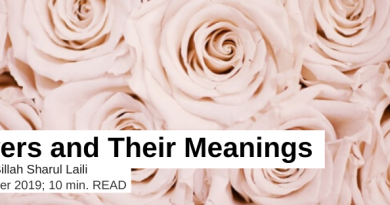21st Century of Bigotry Against Race, Colour, Religion and Cultural Preferences: How Far Have We Progressed?
On last March 15, the world has been left shaken by the news of a terrorist attack in Christchurch, New Zealand – one of the most peaceful countries known to the world. The attack has resulted at least 50 Islam worshippers killed, including a three-year-old boy and many others wounded.
The suspected gunman is identified as an Australian citizen and has been described by the media as a white extremist. What so shocking with this attack, that the perpetrator has recorded his killing spree, shooting the defenceless civilians.
It is not hard to understand the reason for such ruthless rampage since the gunman has released 74-page long manifesto prior to the attack explicitly detailing his abhorrence against the Muslim migrants.
There was one time, we have thought that we have moved away from bigotry, but it seems that we have not progressed that much, have we?
For centuries long, bigotry has been the condition of discrimination, aggression and even, murder in the history of human conflict. The historical evidence has shown that conflicts and wars have been waged across the nation, and between nations because of the differences in ethnicity, skin colour, religion and cultural preferences.
Bigotry has been described by the Oxford dictionary as “intolerance towards those who hold different opinions from oneself”. Bigotry is expressed in many forms and among those most documented in history are, the bigotry against race, skin colour, religion and culture.
One of the most horrendous examples of ethnic cleansing ever documented in the world’s history is the state-sponsored Genocide of Jews, which perpetrated by the National Socialist (The Nazi party) led by Hitler during the World War II between 1939 – 1945. It is unclear how many Jews’ lives were lost due to the Holocaust, but it is believed that it could reach up to six millions in number. The ethnic cleansing by the Nazis German however, was not the last witnessed by the world either.
The ethnic differences have been used to justify torture and murder in these following ethnic conflicts: (1) Bosniaks – Serbs, The Bosnian War from 1992 – 1995 which have killed 100,000 and displaced more than 2 million people. (2) Tutsi – Hutu, The Rwanda Civil War in 1994 which estimated to cost 800,000 lives and more recently, (3) Rohingya – Native Burmese, The Rohingya Crisis. According to the report from Time magazine in March 2018, around 43,000 Rohingya parents have been reported missing and been presumed dead. This crisis has turned more than 723,000 Rohingyas to refugee status.
Other than ethnicity, conflicts have also been linked to racial bigotry. Many are aware of one of the most studied events showcasing racism – USA’s segregation of the Black and White populations in the 1950s.
While the world is said to have moved to a place where racism is decreasing because it no longer discriminates between skin colour on such a massive degree anymore, but what then explains the uprising campaign of Black Lives Matters in the era of 21st century. Though it is evident that US today have seen better access for African-American in society, economy and politic, but the deep-rooted racial bias might not be totally eradicated.
The next form of bigotry – religious bigotry is probably the most consistent factor in causing suffering and deaths to many for centuries. Despite carrying a peaceful message about the perception about life or lifestyle, religion has always found itself at the centre of conflicts.
Among the longest armed conflict motivated by different religious belief is between the Christians – Muslims known as the Crusades. This conflict lasts from 1096 – 1291, which is almost 200 years.
Religion continues to serve as a platform for aggression, for example, the conflict between Roman Catholics- Protestants as documented in: (1) The French Wars of Religion from 1562 – 1598, (2) England, from 15th – 18th Century, and never exactly leaves its backyard when it becomes one of the reasons for the tension brewed in Derry, Northern Ireland from 1960 to early 90s.
Religion, as shown by history can only be practised in peace if the believers share the uniform belief, but sometimes it is also because the others prefer for you to uniformly not having any.
Recently, the China government have received international backlash for subjecting the Chinese Muslims Uyghur and Turkish ethnic origins to internment camps where they are forced to adopt atheism. Click here to watch.
According to independent reporting from the UK, it is estimated that almost 1 million Uyghur Muslim have been detained. End of last year, several countries – Croatia, Japan, Sweden, United States of America and especially Canada have publicly criticised and demand China to end this religious-basis and possibly, ethnic-focused internment campaign.
However, this is also not the first time China has been linked to the aggressive tactic in repressing citizens for their religious beliefs.
Previously, China was also allegedly accused by several sources for suppressing the rights of its citizens to practice Fanlun Gong. Till today, you can see its members, or the family members of the abused practitioners conducting international protests.
Our world might be progressing in technology and new knowledge, but have we progressed thus far in humanity? it seems like the underlying tune of bigotry remains resilient and familiar.
The bigotry of any form has no place in this world. Not in the 21st century. The only way we can constraint such behaviours is by wide-scale acceptance and open-mindedness. The more people expand their minds, the more aware they become, the safer they can make the world – or at least, attempt to…
Reference list
Barron, L. (2018). http://time.com. Retrieved from http://time.com/5187292/rohingya-crisis-missing-parents-refugees-bangladesh/
Crusades. (2018). Retrieved from https://www.history.com/topics/middle-ages/crusades
Kuo, L. (2018). UK confirms reports of Chinese mass internment camps for Uighur Muslims. Retrieved from https://www.theguardian.com/world/2018/oct/31/uk-believes-china-has-interned-about-1-million-uighur-muslims
New Zealand gunman sent manifesto to PM minutes before attack. (2019). Retrieved from https://www.aljazeera.com/news/2019/03/zealand-mosque-attacks-death-toll-hits-50-190317005749685.html
Refugees, U. (2018). Rohingya emergency. Retrieved from https://www.unhcr.org/rohingya-emergency.html
Rwanda: 100 days of slaughter. (2014). Retrieved from https://www.bbc.com/news/world-africa-26875506
Sveen, B. (2017). Bosnian War: What led to the Europe’s most devastating conflict since World War II. Retrieved from https://www.abc.net.au/news/2017-11-20/bosnian-war-explained/9170716
The Holocaust death toll. (2005). Retrieved from https://www.telegraph.co.uk/news/1481975/The-Holocaust-death-toll.html
Vanderklippe, N. (2018). Canada, Western countries condemn China at UN for repression of Muslims. Retrieved from https://www.theglobeandmail.com/world/article-canada-western-nations-condemn-china-at-un-for-repression-of-muslims/

Sarini Azizan has a Ph.D. in Accounting from The Australian National University, Australia. Her research explores the theory of source credibility in corporate financial information communication.
Contact info: sariniazizan@yahoo.co.uk

Hannah has been living in Dubai for 10 years, her love for gymnastics encouraged her to take up Sport Science and is currently pursuing a double degree in Sport Science and Psychology at University of Canberra, Australia.
Contact info: hannah.azmairul@gmail.com




